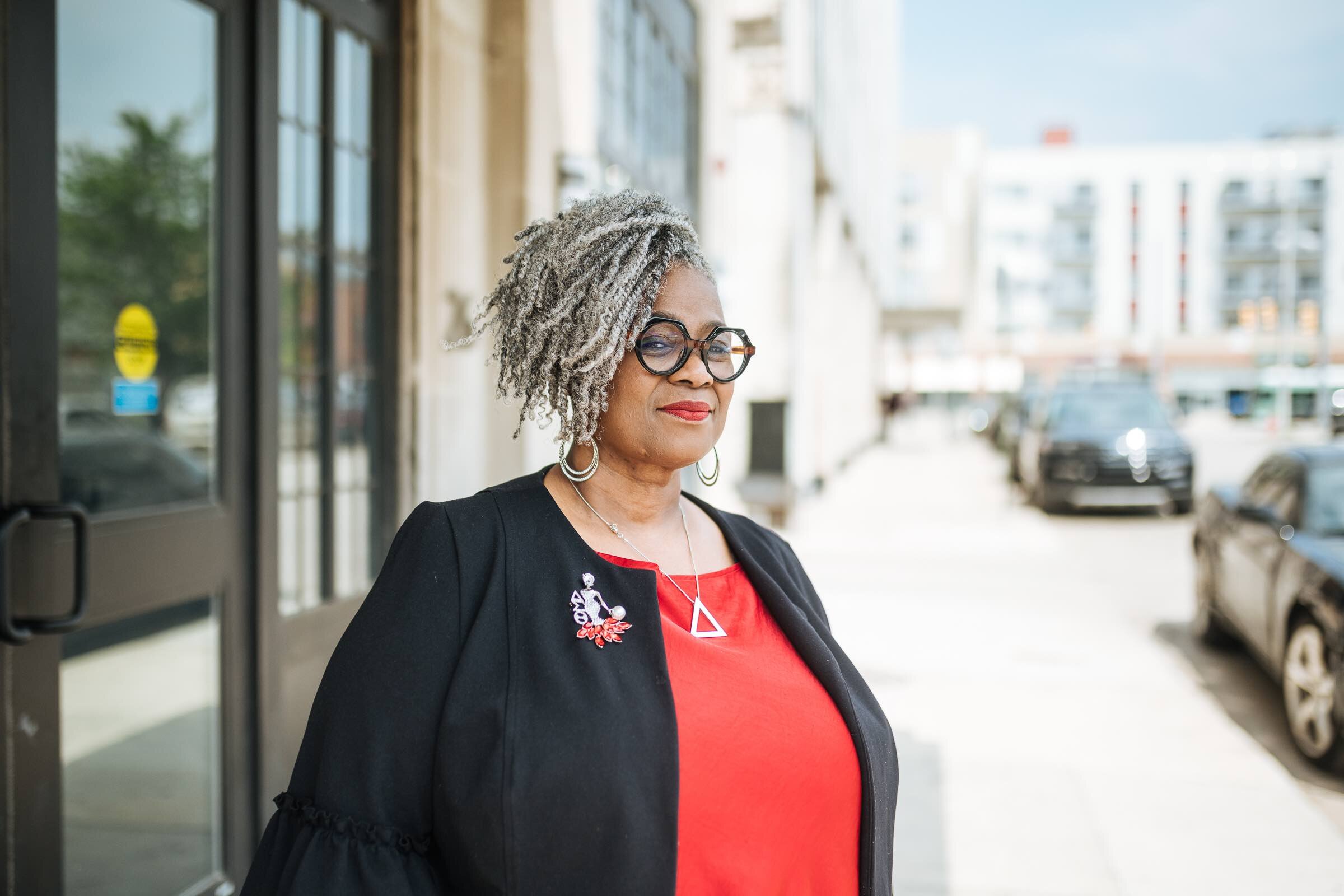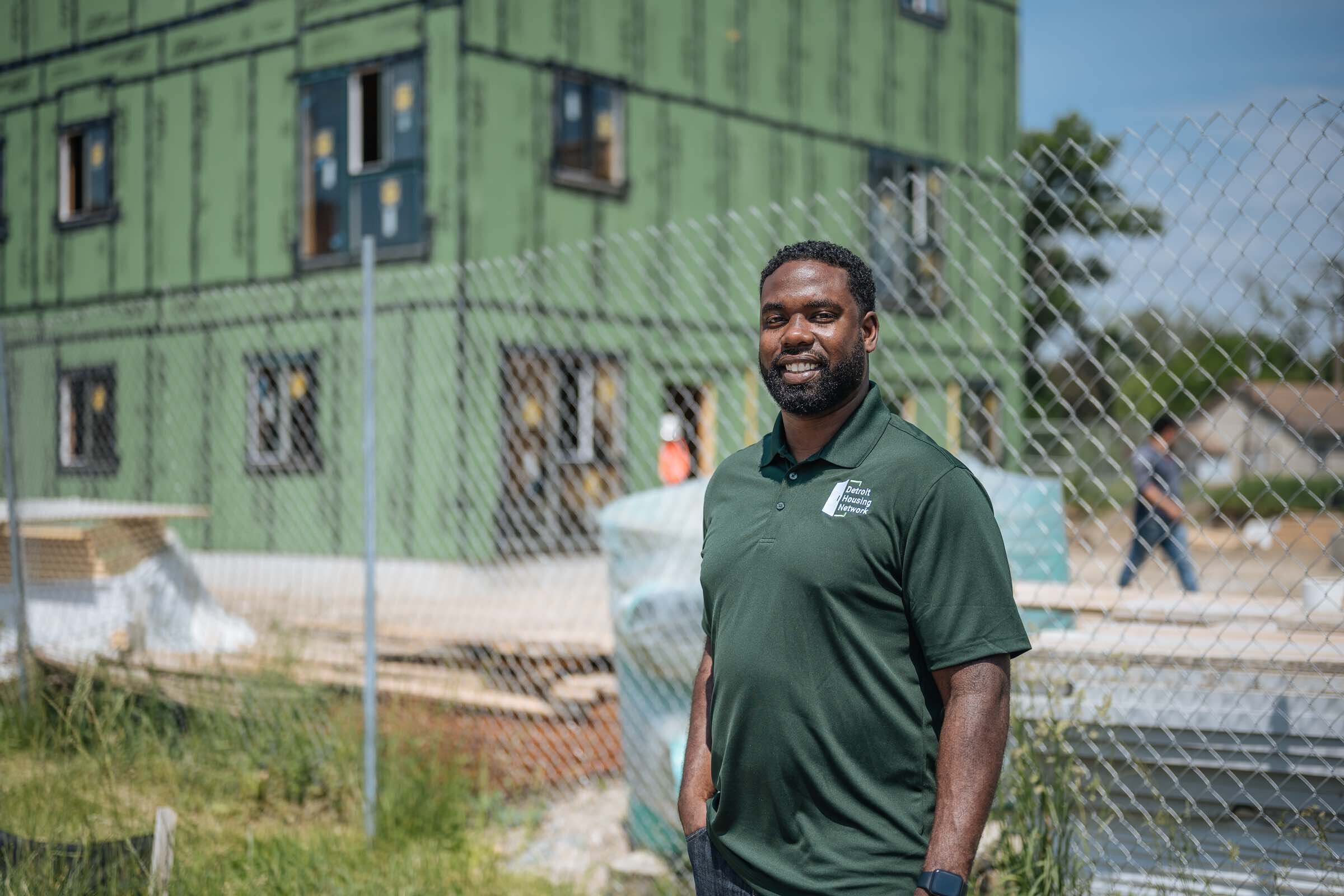Without affordable housing, some Detroiters struggle, lose stable housing
From house-burdened to homeless, Detroiters are feeling the impact of the city's affordable housing crisis.
The most dire consequence of Detroit’s affordable housing crisis is homelessness.
While families become homeless for a number of reasons, according to Candace Morgan, executive director of housing at COTS, one of them is the lack of quality affordable housing.
She recalls one family who lived in a home all winter with no heat. The family decided they could no longer live there, so the mother and her four children came to the shelter.
Another recent newcomer had lived with her mom because she couldn’t afford to rent a place on her own, Morgan says.
“She had a job, but it wasn’t enough to pay $1,100 in rent and, you know, buy the children that they needed and the lights and gas,” Morgan says. Her mother was helping supplement her housing costs, but when the mother passed away, she found herself at the shelter.
While there is a myriad of reasons why Detroiters become unhoused, the lack of affordable housing is among that list. The scarcity doesn’t always result in homelessness, but it can mean people are living in substandard conditions, in unsafe neighborhoods, in a home that houses too many people, or far from where they work.
Meaningfully addressing the city’s homelessness will require a blend of solutions, including shifting from private landlords to public housing and removing barriers to affordable rentals.
Following the news of the Detroit City Council’s tenants’ rights commission, Model D spoke with nonprofit organizations and housing justice groups about the need for affordable housing and policy changes that would help to achieve housing justice for the city’s renters.
Among the factors that make rent unaffordable in Detroit is the use of regional data to determine affordable rental rates, says Jaime Junior, a volunteer with the Detroit People’s Platform. Using the regional Area Median Income (AMI) doesn’t take into account lower-income Detroiters’ salaries, Junior says.
Adding to skewed AMI rates is a lack of affordable units in Detroit. Though there are numerous housing developments underway, there aren’t enough housing units to meet demand, says Kea Mathis, family engagement and housing organizer at the Detroit People’s Platform. It would be ideal to require developers to include a percentage of affordable housing in new housing developments for renters with a $40,000 salary, for example, Mathis says.
“It’s not enough for the homeless population that are moving into housing. It’s not enough for the ones who are outgrowing what they have or the ones where the housing is just so bad and dilapidated that they have to relocate,” Mathis says.
Adding to the cost, low-income renters can pay application fees between $25 and $30 for each application.
For many Detroiters and renters in the metro area (Macomb, Oakland and Wayne counties), renting consumes a substantial share of their income. A 2024 report from the University of Michigan found that more than one-third of metro Detroit residents pay more than 30% of their income on housing costs, thus making them house-burdened.
Another obstacle is finding a landlord with a suitable apartment. While COTS Detroit has been able to find landlords willing to rent to the unhoused people they assist, some landlords aren’t willing to update their units to be compliant with the U.S. Department of Housing and Urban Development’s tenant regulations, Morgan says. The properties can’t, for example, have broken windows, malfunctioning doors or lack running water access, she says.
“We need not just private landlords, we need the city and the state to develop more affordable housing with subsidies,” Morgan says.
For aspiring homebuyers in Detroit, the obstacles to buying a home are higher interest rates and a limited supply, says Jason Headen, vice president of the Detroit Market at CHN Housing Partners. CHN is a nonprofit affordable housing developer and housing service provider that works with local partners to address significant housing challenges for underserved communities.
Along with high interest rates and demand that outsprints supply, another major obstacle is rehabilitating housing stock, Headen says. Buying a possibly cheaper fixer-upper could be a creative pathway to becoming a homeowner, but the necessary repairs could be a challenge for homebuyers without construction expertise or the money.
“You could put yourself potentially in harm’s way if you’re not following the different rules, regulations, et cetera, or just understanding the process of having time to do it,” Headen says. “Folks have kids and families and jobs. Sometimes it can be daunting.”
In the long term, the cost of foreclosures could have tough consequences for Detroit. Headen says that another vacant property in a community represents a loss in tax revenue and a loss of property value in a neighborhood.
There are also the psychological and emotional effects of losing a home. “It’s a real thing,” Headen says. “As a child, my family, we lost a home. So that’s something I’ll never forget. Maybe it’s the reason I work in the space that I do.”
Morgan says she recognizes the city’s work to address homelessness and affordable housing, but the shift is not occurring as fast or at scale the way that housing advocates like to see.
“I think that they understand that there has to be some equity in Detroit. It can’t just be downtown. It can’t just be Midtown. It has to be our communities and our neighborhoods as well,” Morgan says.
For Detroiters looking to buy a home or rent a lower-priced apartment, the Detroit Housing Network works with multiple partner organizations to connect Detroiters with financial counseling and other services for renters and aspiring homebuyers. The organization takes intake calls to find available resources for Detroiters seeking housing with the broader goal of shepherding Detroiters toward homeownership.
Other community development organizations in specific neighborhoods of Detroit, such as Central Detroit Christian Community Development Corporation, U SNAP BAC and others, provide housing services and financial and housing counseling programs. Some, like Cody Rouge Community Action Alliance, offer home repair programs.
Renters interested in forming a tenants’ organization or union can take advantage of the Detroit People’s Platform’s renters’ workshops, during which they can learn their rights and how to advocate for themselves. The goal, Mathis says, is to rebalance the relationship between renters and landlords, so that tenants’ unions can form and push for better living conditions.
“Right now, you have the landowner and the management company, and they have power over the renter,” Mathis says. “We try to even up that playing field.”
Resilient Neighborhoods is a reporting and engagement series examining how Detroit residents and community development organizations work together to strengthen local neighborhoods. It’s made possible with funding from The Kresge Foundation.









